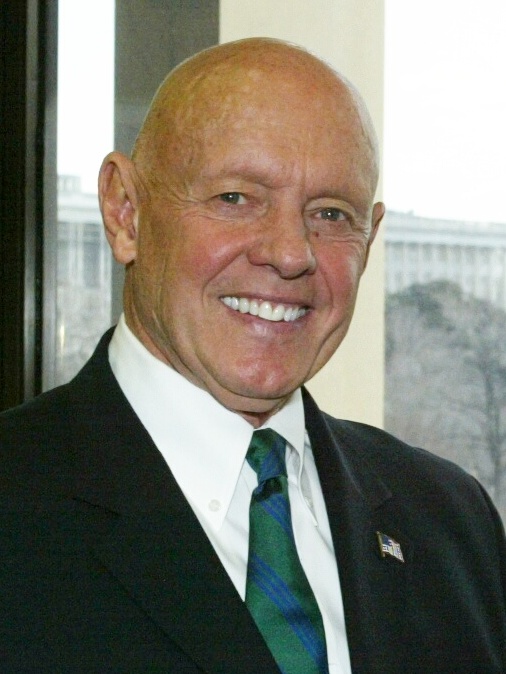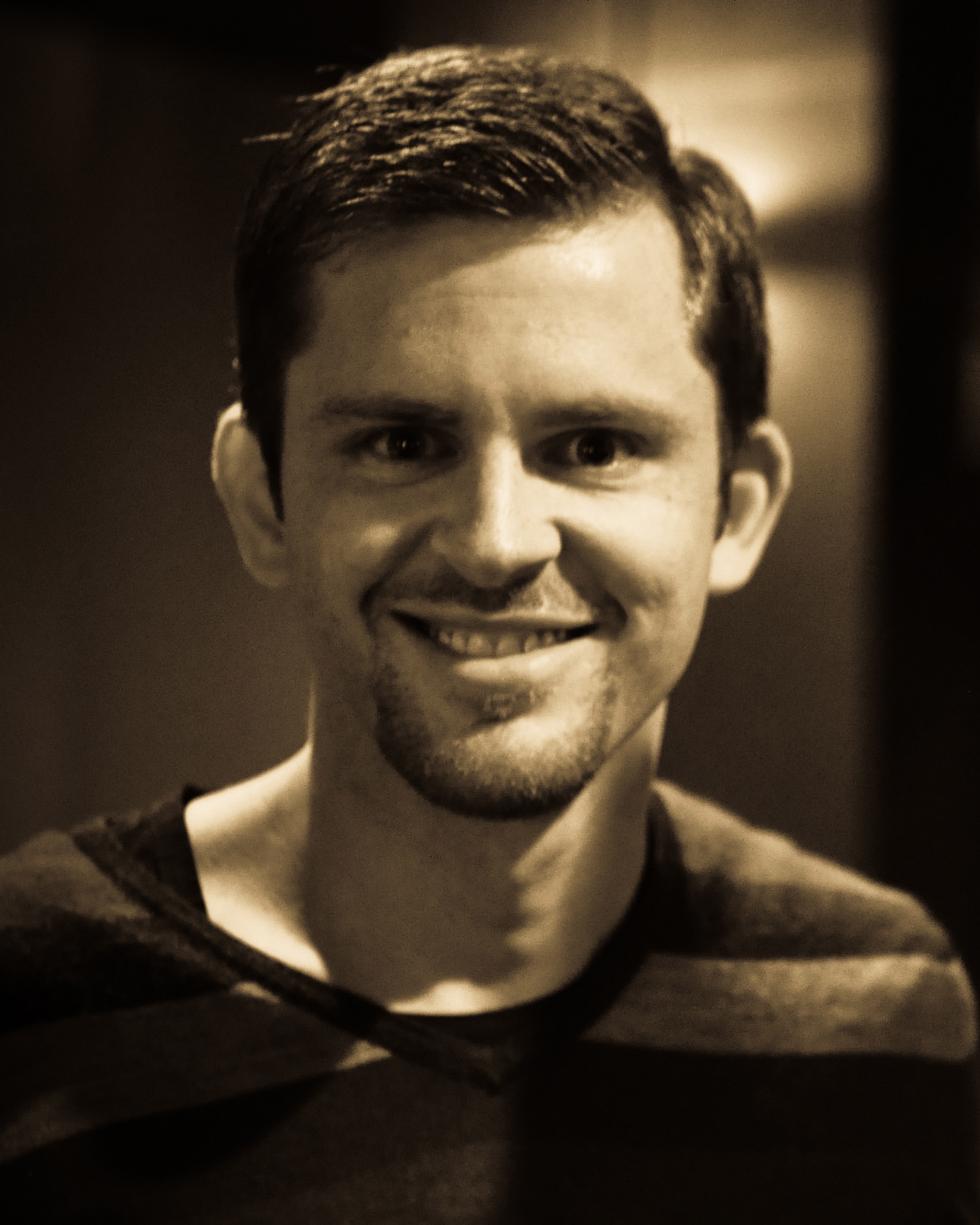Discover the 13 best books for entrepreneurs to help you turn your passion into a profitable business.
Entrepreneurship is often a skill that people talk about as if it were something you’ve either got or not. While it’s certainly true that some of silicon valley’s most well-known names appear to have a natural talent for becoming successful business owners, there are plenty of resources that will teach you how you can build your own business as an entrepreneur.
Starting your own business seems like a daunting prospect at first. Still, once you’ve read some of the best sellers about entrepreneurship, you’re guaranteed to be confident about your ability to build an online business.
In this post, we’ll look at the best books for aspiring entrepreneurs from some of the most respected names in the business world. Many of these books offer the reader step-by-step instructions on how to kick-start their entrepreneurial career, while others provide detailed case studies on business strategy.
Whether you’re starting as an entrepreneur or are already a small business owner and want to add to your skills, the books in this list deserve a spot on your reading list.
Contents
- The Best Books For Entrepreneurs
- 1. The 4-Hour Workweek By Tim Ferriss
- 2. The E-myth Revisited By Michael E. Gerber
- 3. The Hard Thing About Hard Things By Ben Horowitz
- 4. The Lean StartUp By Eric Ries
- 5. How To Win Friends And Influence People By Dale Carnegie
- 6. 7 Habits Of Highly Effective People By Stephen R. Covey
- 7. Start With Why By Simon Sinek
- 8. The $100 Startup By Chris Guillebeau
- 9. Small Giants By Bo Burlingham
- 10. Rich Dad Poor Dad By Robert Kiyosaki
- 11. Zero to One By Peter Thiel
- 12. Think and Grow Rich By Napoleon Hill
- 13. Traction: Get A Grip On Your Business By Gino Wickman
The Best Books For Entrepreneurs
1. The 4-Hour Workweek By Tim Ferriss

The 4-hour WorkWeek: Escape 9-5, Live Anywhere, and Join the New Rich is a New York Times bestseller from the US entrepreneur and writer Tim Ferriss.
Ferris holds a BA in East Asian Studies from Princeton University, and he founded BrainQUICKEN, an online nutrition brand, in 2001. His company grew into a huge success, and he sold it in 2010 to a private equity firm.
According to Ferris, he was inspired to write the 4-hour workweek based on his experiences as a young entrepreneur building BrainQUICKEN. The book is less about building a business and more about how to improve time management and resource investment.
He argues that the 9-5 grind massively impedes someone’s ability to achieve entrepreneurial success, and as a result, it’s important to take time out to analyze your business plan.
Ferriss’s work drew some controversy, with critics claiming the title is misleading, but it’s one of the most successful business books of the 21st century, having sold over two million copies and been translated into 40 languages. Looking for more educational books to binge on a weekend? Check out our round-up of the best economic books! You can also search for our best book guides using our search bar.
“Focus on being productive instead of busy.”
Tim Ferriss
2. The E-myth Revisited By Michael E. Gerber
Although The E-myth Revisited: Why Most Small Businesses Don’t Work and What to Do About It was published in 1985, well before many of the technological developments that today’s entrepreneurs focus their business plans on existed, it still holds a lot of valuable lessons for anyone looking to start their own business.
Michael E. Gerber is a business coach and bestseller who has written over two dozen business books in his career as a writer and entrepreneur. He is considered by many to be an entrepreneurship trailblazer and has more experience helping people turn their ideas into successful business models than just about anyone else.
In The E-Myth Revisited, Gerber debunks the myth that anyone who starts a small business is automatically an entrepreneur. He argues that for a new business to succeed truly, it requires three types of personalities driving it forward:
- Entrepreneur: Someone who sees great opportunities in the future.
- Manager: Someone that concerns themselves with the past and reacts to it with plans and organization.
- Technician: Someone that understands the most present tasks and technical challenges.
At the heart of Gerber’s concepts runs the theory that a truly great business will eventually run itself. This book is a great read if you want to improve how you run your business and understand what it means to be a successful entrepreneur. You might also be wondering, why write a white paper.
“If your business depends on you, you don’t own a business—you have a job. And it’s the worst job in the world because you’re working for a lunatic!”
Michael E. Gerber
3. The Hard Thing About Hard Things By Ben Horowitz
Ben Horowitz is the co-founder of the venture capital firm Andreessen Horowitz also known as a16z. In his book The Hard Thing About Hard Things, he explores some of the toughest challenges entrepreneurs face and dives into the psychology behind building a successful business.
The book has been widely praised for its brutal honesty about entrepreneurship. While many authors and entrepreneurs try to pretend that they became successful overnight due to their raw talent, Ben Horowitz talks honestly. The book teaches the reader hard truths about business while offering insights from his own life and other case studies.
A particularly valuable and unique aspect of Horowit’s book comes from its insights into psychology. He guides the reader toward finding answers about how they react to certain situations and how they can improve on these reactions.
While some business books focus heavily on the individual, Horowitz spends a lot of time detailing why entrepreneurs must look after their team above all else. Without a happy and productive team, you’ll never succeed.
“Take care of the people, the products, and the profits – in that order.”
Ben Horowitz
4. The Lean StartUp By Eric Ries

The Lean Start-up by Eric Ries is a detailed methodological analysis of the best practices for building tech start-up companies on a tight timeline and budget.
Eric Ries is a US-based entrepreneur who studied at Yale University and started his professional career in the early 2000s as a software engineer in Silicon Valley. After gaining experience in online start-ups, he co-founded the IMVU social network.
Reis later joined a venture capital firm and began offering his knowledge to clients as a start-up specialist. His book The Lean Startup contains all the knowledge he acquired during his career in entrepreneurship and how he applies it to start-up business strategy.
In his book, he explains how someone can build a functioning business plan based on his own business development methodology. The book details how entrepreneurs can minimize risk in the early stages of product development and maximize product rollout speed.
“We must learn what customers really want, not what they say they want or what we think they should want.”
Eric Ries
5. How To Win Friends And Influence People By Dale Carnegie
Written during the darkest period of the 1929 Great Depression, Dale Carnegie’s book How To Win Friends And Influence People remains one of the most important books for any entrepreneur to read nearly a century after its publication.
Dale Carnegie was born into an impoverished Misuri family in 1888. Carnegie, more than anyone, understood the importance of investing resources efficiently and surrounding yourself with capable people if you want to succeed in business.
He went from poverty to becoming one of America’s 20th-century bestselling authors with How To Win Friends And Influence People, which has been translated into dozens of languages and sold over 30 million copies.
In the book, Carnegie gives a detailed guide to becoming a more effective networker and team builder. As an entrepreneur is also a leader, this book is a must-read. It contains timeless information about public speaking, communication, and team management.
The book is divided into four sections:
- People Management
- Getting People To Like You
- Persuasive Speech
- Behavior Manipulation
Carnegie’s book is a gold mine of team management information that often acts as a step-by-step guide to improving your ability to relate to and work with people.
“Any fool can criticize, complain, and condemn—and most fools do. But it takes character and self-control to be understanding and forgiving.”
Dale Carnegie
6. 7 Habits Of Highly Effective People By Stephen R. Covey

Like anything, being very good at something requires us to practice certain habits consistently. Stephen R. Covey outlines seven of the most important habits in his book 7 Habits Of Highly Effective People.
The book provides the reader with a seven-step process for achieving their goals. Stephen R. Covey’s theory argues that we can achieve our goals by aligning our habits to ‘true north’ principles and ethics.
The book is broken down into seven habits that, once mastered, will help you as an entrepreneur hit your targets. If you want to read more books like this one, check our guide to the best self help authors.
Habit 1: Become more proactive, especially in response to difficult situations.
Habit 2: Focusing on your long-term goals and how you’ll achieve them is crucial to success as it allows you to act purposefully.
Habit 3: Prioritizing tasks based on their true level of importance.
Habit 4: Always aim to create win-win solutions in agreements.
Habit 5: Try to understand other people’s perspectives before making yourself understood.
Habit 6: Combine people’s skills through effective teamwork.
Habit 7: Build a sustainable, healthy, and effective lifestyle.
“Make small commitments and keep them. Be a light, not a judge. Be a model, not a critic. Be a part of the solution, not the problem”.
Stephen R. Covey
7. Start With Why By Simon Sinek
Simon Sinek’s book Start With Why: How Great Leaders Inspire Everyone To Take Action is a must-read for entrepreneurs looking to expand their leadership abilities and learn how to make effective decisions as a boss.
Simon Sinek is a British-American author who spent his early adulthood working in advertising in New York before founding Sinek Partners. He is a motivational speaker who has inspired millions of young entrepreneurs with his lectures and interviews.
In Start With Why Sinek discusses the importance of leaders that refuse to abide by the status quo and instead use their creativity to solve problems and offer genuinely new ideas.
One of the most interesting concepts in the book for entrepreneurs is the ‘golden circle’ model, which focuses on three questions.
- WHY: He argues that the first question we need to ask future leaders is ‘Why’ as this will reveal the true motivation behind the purpose of a company and its services.
- WHAT: Asking ‘What’ is the easy part of building a company. This is the product that you offer or what employees actually do.
- HOW: Asking ‘How’ you plan to produce your service or product is crucial, and Sinek’s book could help you find the answer.
“People don’t buy what you do; they buy why you do it. And what you do simply proves what you believe” Simon Sinek
8. The $100 Startup By Chris Guillebeau

If you’re looking for some easy-to-digest entrepreneurship tips, The $100 Startup: Fire Your Boss, Do What You Love, and Work Better To Live More should definitely be on your reading list.
In his bestselling book, Chris Guillebeau uses 50 case studies to provide sound advice on turning your passion into a successful business. All the case studies used in the book began as relatively modest projects that didn’t have massive funding but were able to scale up into very profitable businesses earning over $50k per year.
Chris Guillebeau isn’t your average business book writer. He’s an avid traveler who’s visited almost every country in the world without ever having a 9-5 office job. Instead of subscribing to the 9-5 grind, Chris has learned how to turn his ideas into money which is the ultimate goal of an entrepreneur.
The $100 Startup is a fantastic read if you plan to invest some modest savings into a business plan and want some honest, practical advice from someone who has proven to be a very successful small-scale entrepreneur. Are you in search of books to guide you in your career search? Check out our round-up of the best career guidance books! You can also search for our best book guides using our search bar.
“Ask three questions for every idea: a. How would I get paid with this idea? b. How much would I get paid from this idea? c. Is there a way I could get paid more than once?”
Chris Guillebeau
9. Small Giants By Bo Burlingham
Small Giants: Companies That Choose To Be Great Instead of Big follows two dozen companies that decided to focus on providing the best possible services and products as opposed to squeezing as much profit out of their customers as possible.
Bo Burlingham examines unique companies and, in the process, gives entrepreneurs a case study into how they can build brilliant companies by focusing on what they produce more than how much money they make.
Burlingham’s case studies go directly into the face of standard business practice that generally focuses solely on growing yearly revenue.
By shifting their focus to customer care, the work environment, and community outreach, the ‘small giants’ in the book provide a template for aspiring entrepreneurs who want to build their businesses around a model that doesn’t conform to the traditional system.
“Success means you’re going to have better problems. I’m very happy with the problems I have now.”
Bo Burlingham
10. Rich Dad Poor Dad By Robert Kiyosaki
Rich Dad Poor Dad: What the Rich Teach Their Kids About Money That the Poor and Middle Class Do Not! is a must-read book for anyone looking to become financially wiser and entrepreneurs.
Robert Kiyosaki based the book on a series of parables that looked s the different financial education he received from his working-class father and his friend who had a wealthy father.
The book explains the importance of financial independence and how building your own business is one of the keys to achieving said independence.
In the book, Kiyosaki’s wealthy friend’s father manages his money wisely, generating profit as an entrepreneur and an investor, while his own father toiled hard all his life for very little reward.
The book helps you question your fundamental understanding of money and wealth, providing a guide to becoming a better entrepreneur and investor.
Rich Dad Poor Dad is one of the most successful business books ever published, racking up over 30 million sales in over 50 different languages.
“Winners are not afraid of losing. But losers are. Failure is part of the process of success. People who avoid failure also avoid success.”
Robert Kiyosaki
11. Zero to One By Peter Thiel
Peter Thiel, the German-American entrepreneur, billionaire, and co-founder of Paypal, is one of the most well-known names in the tech industry and in Silicon Valley.
Zero to One: Notes on Startups, or How To Build The Future, is a collection of notes from Theil’s lectures as part of a master’s course at Stanford University. Many aspiring entrepreneurs hoping to build the next Apple or Amazon cite this title.
The book focuses on Thiel’s specialty: tech startups. He presents several nuanced ways of thinking about entrepreneurship in the tech start-up market. It covers a wide range of skills you’ll need to become a successful start-up entrepreneur, including business management, economics, technology, and team-building.
Even though Zero to One is only 200 pages long, it covers a lot of ground. It manages to build on some profound political and economic questions and provide guidance to entrepreneurs.
There’s no doubt that Peter Thiel is one of the most highly-regarded tech sector entrepreneurs, so if you’re thinking about starting a tech business, consider reading Zero to One.
“The most valuable businesses of coming decades will be built by entrepreneurs who seek to empower people rather than try to make them obsolete.”
Peter Thiel
12. Think and Grow Rich By Napoleon Hill
Think and Grow Rich is a guide to personal development. Like Dale Carnegie’s work, it has remained one of the go-to books for entrepreneurs nearly a century since it was first published.
Napoleon Hill was born in 1883 in a poor family in South West Virginia to a British mother who crossed the New World in 1847.
From an early age, Hill had a passion for writing, and despite his difficult upbringing, he secured work at a local newspaper. Later in life, he published his first book, The Law of Success, which became a bestseller and allowed him to focus all his attention on writing.
Think and Grow Rich was published in 1937, and much of it was based on The Law of Success, but with a mountain of extra knowledge Hilll had acquired over two decades of studying wealthy American entrepreneurs.
Hill discovered 16 ‘laws’ that he’d learned from his case studies that, if applied correctly, increase the probability of success in business and personal matters. In his book, he condenses the 16 laws down to 14 and guides the reader toward leveraging them for building successful businesses.
Don’t be discouraged by how much time has passed since Think and Grow Rich was published, as Hill’s ideas have continued to inspire new generations of entrepreneurs every year since 1937.
“You are the master of your destiny. You can influence, direct and control your own environment. You can make your life what you want it to be.”
Napoleon Hill
13. Traction: Get A Grip On Your Business By Gino Wickman
Gino Wickman has designed a unique Entrepreneurial Operating System (EOS) that helps small business scale up their operations by improving the core pillars that generate productivity in a company.
Traction: Get A Grip On Your Business is a great read if you’ve already started a successful business as an entrepreneur but need guidance in scaling to generate more profit and grow its market share.
Wickman’s EOS plan is more than just a business guide; it also provides entrepreneurs with a framework for improving their work-life balance and building an effective team around a project.
He breaks down the EOS plan into six factors: vision, People, Data, Issues, Processes, and Traction. Effectively mastering all six variables has helped entrepreneurs scale their businesses. In addition, EOS comes with downloadable tools that allow you to track your progress and fine-tune your implementation process.
“Don’t mistake activity for productivity. Creativity is productivity—it just doesn’t feel like it at first.”
Gino Wickman
